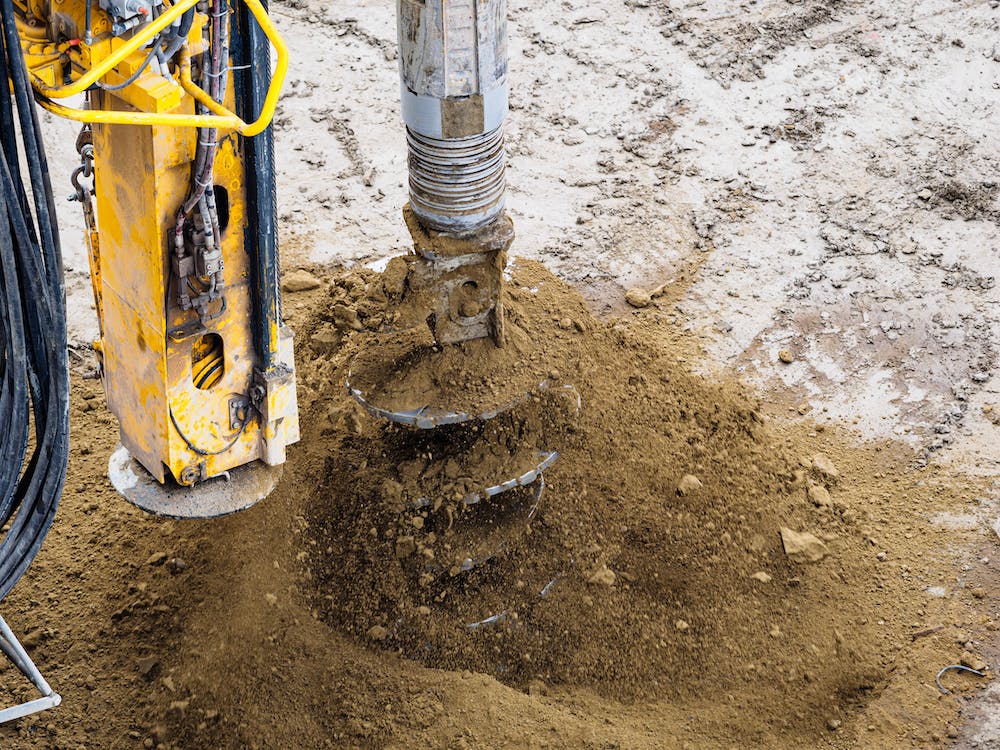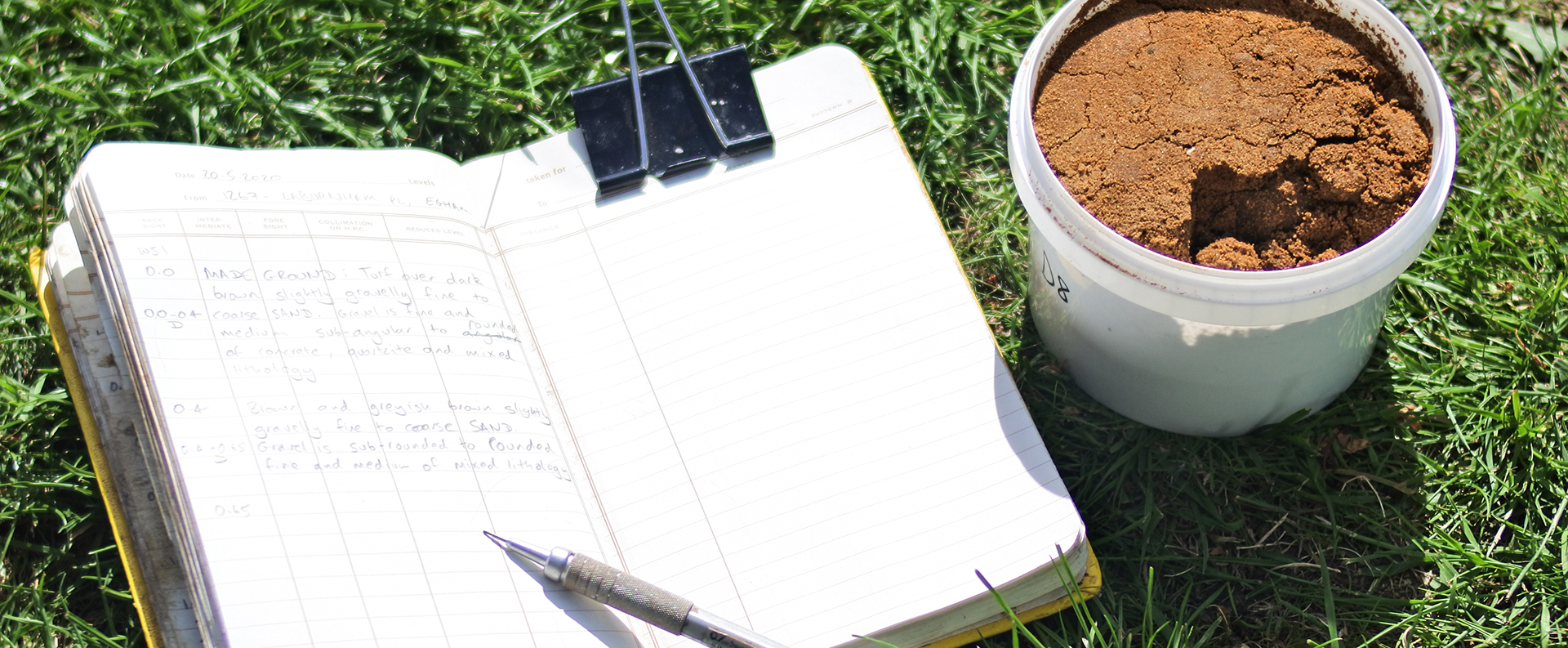Understanding the Fundamentals: Concerning Geotechnical Engineering in Modern Construction
Understanding the Fundamentals: Concerning Geotechnical Engineering in Modern Construction
Blog Article
The Value of Geotechnical Engineering in Dealing With Environmental Difficulties and Enhancing Building Safety
Geotechnical engineering offers as a foundation in the junction of environmental stewardship and building and construction security, providing essential insights right into the habits of soil and rock under different problems. By executing strategic site examinations and tailored reduction measures, geotechnical engineers play an essential role in guarding both human lives and ecological stability.

Role of Geotechnical Engineering
Geotechnical engineering plays a crucial role in the design and building and construction of framework by resolving the actions of dirt and rock materials under various conditions. This area of design is vital for comprehending the interaction in between frameworks and the ground, that includes identifying the load-bearing capacity of dirt, analyzing security, and predicting potential negotiation or failure.
Geotechnical engineers are in charge of performing site investigations, which entail sampling and testing dirt and rock to gather information on their chemical and physical homes. This information is vital for creating foundations, retaining wall surfaces, and other earth-retaining frameworks that guarantee safety and durability. Geotechnical design educates the selection of ideal construction techniques and materials, thereby lessening risks connected with soil habits.
Moreover, the combination of geotechnical design principles right into city planning and ecological monitoring is important for addressing difficulties such as ground contamination and groundwater monitoring. By understanding geotechnical elements, designers can develop lasting options that boost the resilience of facilities versus all-natural dangers, while additionally promoting environmental stewardship. Eventually, the duty of geotechnical engineering is important for attaining secure, durable, and ecologically conscious building and construction techniques.
Soil Erosion Mitigation
Dirt disintegration positions a considerable hazard to both environmental stability and infrastructure stability, influencing about 24 billion loads of productive dirt shed every year worldwide. This sensation is aggravated by variables such as logging, urbanization, and inadequate agricultural practices. Geotechnical engineering plays a pivotal role in establishing efficient soil disintegration mitigation techniques that guard both the environment and construction jobs.
One approach entails the execution of disintegration control techniques such as plant life growing, which supports soil via root systems. In addition, the construction of keeping balconies and walls can effectively reduce surface area drainage and secure susceptible areas from disintegration. Appropriate drain design is additionally critical; it lessens water build-up and directs excess drainage far from crucial structures.
In addition, geotechnical designers employ dirt stabilization techniques, such as the application of geotextiles and eco-friendly mats, to enhance dirt cohesion and protect against deterioration - about geotechnical engineering. Regular monitoring and evaluation of erosion-prone sites allow timely treatments, guaranteeing lasting sustainability. By integrating these approaches, geotechnical engineering not just reduces the influences of soil erosion however also adds to the resilience of framework against ecological challenges, eventually cultivating a much safer and extra sustainable developed environment
Groundwater Security Approaches
Groundwater works as a vital resource for drinking water, agriculture, and commercial processes, making its defense necessary for environmental sustainability and public health. Reliable groundwater protection methods are critical in alleviating contamination threats and ensuring the durability of this source.

Normal tracking of groundwater quality is likewise important, making it possible for very early detection of contamination resources and facilitating prompt remediation initiatives. Employing sophisticated technologies, such as geophysical studies and remote sensing, help in identifying prospective threats to groundwater books.
Furthermore, public education and stakeholder involvement are important, cultivating neighborhood assistance for groundwater protection efforts. geotechnical companies in south africa. By incorporating regulatory steps, technical advancements, and neighborhood participation, we can create a detailed structure that safeguards groundwater sources while promoting sustainable advancement and construction techniques
Landslide Risk Monitoring
Landslides pose considerable hazards to both human safety and infrastructure, making efficient threat management techniques necessary. Geotechnical design plays an essential function in determining, analyzing, and mitigating landslide threats. A comprehensive understanding of slope stability, soil auto mechanics, and hydrology is important for creating efficient threat administration strategies.
The primary step in landslide risk management involves complete website examinations, which consist of geological read here mapping and dirt screening. These examinations assist designers examine the capacity for landslides by determining important variables such as incline angles, soil structure, and water material. Utilizing advanced technologies such as remote sensing and geophysical studies can boost the accuracy of these evaluations.
When risks are identified, appropriate reduction procedures can be carried out. These may include design options such as maintaining walls, drainage systems, and incline stablizing techniques. Furthermore, monitoring systems need to be developed to discover signs of ground activity and adjustments in water levels, allowing for aggressive interventions.

Enhancing Construction Safety
Construction sites often present a myriad of hazards that can jeopardize employee safety and security and task integrity. Geotechnical engineering plays a crucial role in enhancing construction safety by offering important insights into subsurface conditions. Via thorough dirt and rock analysis, geotechnical engineers can identify potential dangers, such as dirt instability, groundwater issues, and seismic susceptabilities, which may jeopardize the security of building tasks.
Applying geotechnical services, such as proper Visit Your URL structure layout and using maintaining structures, mitigates these threats substantially. These services not only make certain the stability of you can try these out the structures being constructed however also produce a safer working setting for building personnel. In addition, rigorous surveillance and evaluation of site problems throughout the construction procedure are important. Making use of sophisticated innovations like ground-penetrating radar and inclinometer systems enables real-time data collection, enabling timely treatments when risks are detected.
Moreover, fostering a culture of security with training and adherence to developed security methods better boosts building and construction website safety. By integrating geotechnical knowledge into the planning and execution phases, construction projects can achieve higher safety standards, inevitably protecting employees and making certain effective task conclusion.
Final Thought
In final thought, geotechnical design offers as a vital discipline in taking on environmental obstacles and promoting building and construction security. Via effective dirt erosion reduction, groundwater defense methods, and landslide threat administration, geotechnical designers contribute to the advancement of resistant infrastructure.
Geotechnical design serves as a foundation in the junction of environmental stewardship and building safety and security, offering important insights into the behavior of soil and rock under different problems. Geotechnical engineering notifies the option of appropriate building techniques and products, thereby lessening threats associated with soil habits.
Geotechnical design plays a crucial role in developing efficient dirt disintegration reduction strategies that protect both the atmosphere and building tasks.
In addition, geotechnical engineers employ soil stabilization methods, such as the application of geotextiles and naturally degradable floor coverings, to improve dirt communication and protect against destruction. Through extensive soil and rock analysis, geotechnical engineers can identify potential risks, such as soil instability, groundwater issues, and seismic vulnerabilities, which may compromise the safety of construction activities.
Report this page